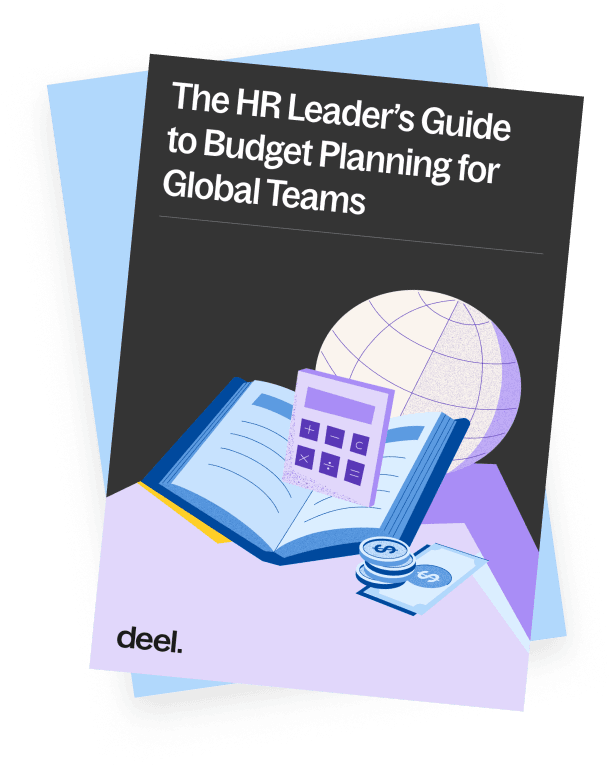Remote Work Glossary
- Results for "undefined"
Table of Contents
What is an HR strategy?
Why is HR strategy important?
How to create a human resource strategy
What are the benefits of strategic human resources planning?
What is an HR Strategy
An HR strategy is an organization's plan to align its HR practices with its overall business goals and objectives. It defines the role of HR management in supporting the organization's success and outlines the strategies and HR metrics that will be used to achieve those goals.
An HR strategy is an important tool for organizations because it helps them plan for and manage their human capital effectively to support their overall business objectives.
What is an HR strategy?
An HR strategy typically includes a clear statement of the organization's goals and objectives, as well as a description of the HR function's role in achieving those goals.
A strategic HR plan includes details about the human resource department policies, programs, and practices supporting the organization's objectives, such as recruiting and hiring, training and development, performance management, and employee engagement.
Additionally, an HR strategy outlines how the HR function will measure and track its progress in achieving its goals, as well as any challenges or obstacles that may need to be addressed.
Why is HR strategy important?
An HR strategy is important for both employees and employers because it helps ensure that the HR function is aligned with the organization's overall goals and objectives.
For employers, an HR strategy provides a clear plan for managing and developing human capital, which is a critical resource for any organization. It helps employers identify the HR practices and policies that are most effective in achieving their goals, and it provides a framework for tracking and measuring the HR team’s progress.
For employees, an HR strategy can clarify the HR function's role in supporting their success, as well as the policies, programs, and practices in place to support their development and engagement. This helps employees understand how their work fits into the organization's overall goals and objectives and how they contribute to its success.
How to create a human resource strategy
Several steps are involved in developing an HR strategy that encourages effective human resource management.
- Conduct an HR audit to identify current HR practices, policies, and programs in the business.
- Identify the organization's goals and objectives, and determine how the HR function can support those goals.
- Define the role of the HR function in supporting the organization's goals and objectives.
- Develop HR policies, programs, and practices aligned with the organization's goals and objectives.
- Identify any challenges, disruptions, or obstacles that need to be addressed to implement the HR strategy effectively.
- Communicate the HR strategy to employees, stakeholders, and business partners, and seek their input and feedback.
- Implement the HR strategy and track progress in achieving its goals and objectives.
- Regularly review and update the HR strategy to ensure it remains aligned with the organization's objectives.
What are the benefits of strategic human resources planning?
Investing in an HR strategy can provide numerous benefits which help HR leaders drive organizational success and support the organization's overall objectives.
Improved alignment between HR practices and organizational goals
An HR strategy improves alignment between HR practices and organizational goals by defining the role of the HR processes in supporting the organization's goals and objectives and developing policies, programs, and practices aligned with those goals.
Increased employee engagement and satisfaction
An HR strategy involves a talent strategy geared toward increasing employee satisfaction and engagement. It helps employees understand how their work fits into the bigger picture, and it provides them with the support and resources they need to be successful in their roles, leading to increased employee engagement and satisfaction.
In turn, it has a positive impact on the organization's overall performance, employee retention, and improving the work environment.
Better management of human capital
A strategy helps HR professionals with talent management and workforce planning by providing a clear plan for managing and developing the organization's staffing capital. The plan provides a framework for tracking and measuring the HR team’s progress in supporting the organization's objectives and effectively managing the team.
From onboarding and setting key performance indicators (KPIs) to managing competencies and streamlining succession planning, the HR department plays a key role in the overall business strategy.
Enhanced compliance with employment laws and regulations
The HR department establishes HR policies and practices designed to ensure compliance, as well as provides training and resources to HR staff and employees on their rights and responsibilities under relevant laws.
Greater organizational efficiency and effectiveness
A successful HR strategy provides a clear roadmap for managing and developing the organization's human capital, aligning HR practices with the organization's goals and objectives, and ensuring that the HR function effectively supports the organization's success.
Strategic human resource management gives a business a competitive advantage, boosts company culture, and enhances employee performance.
